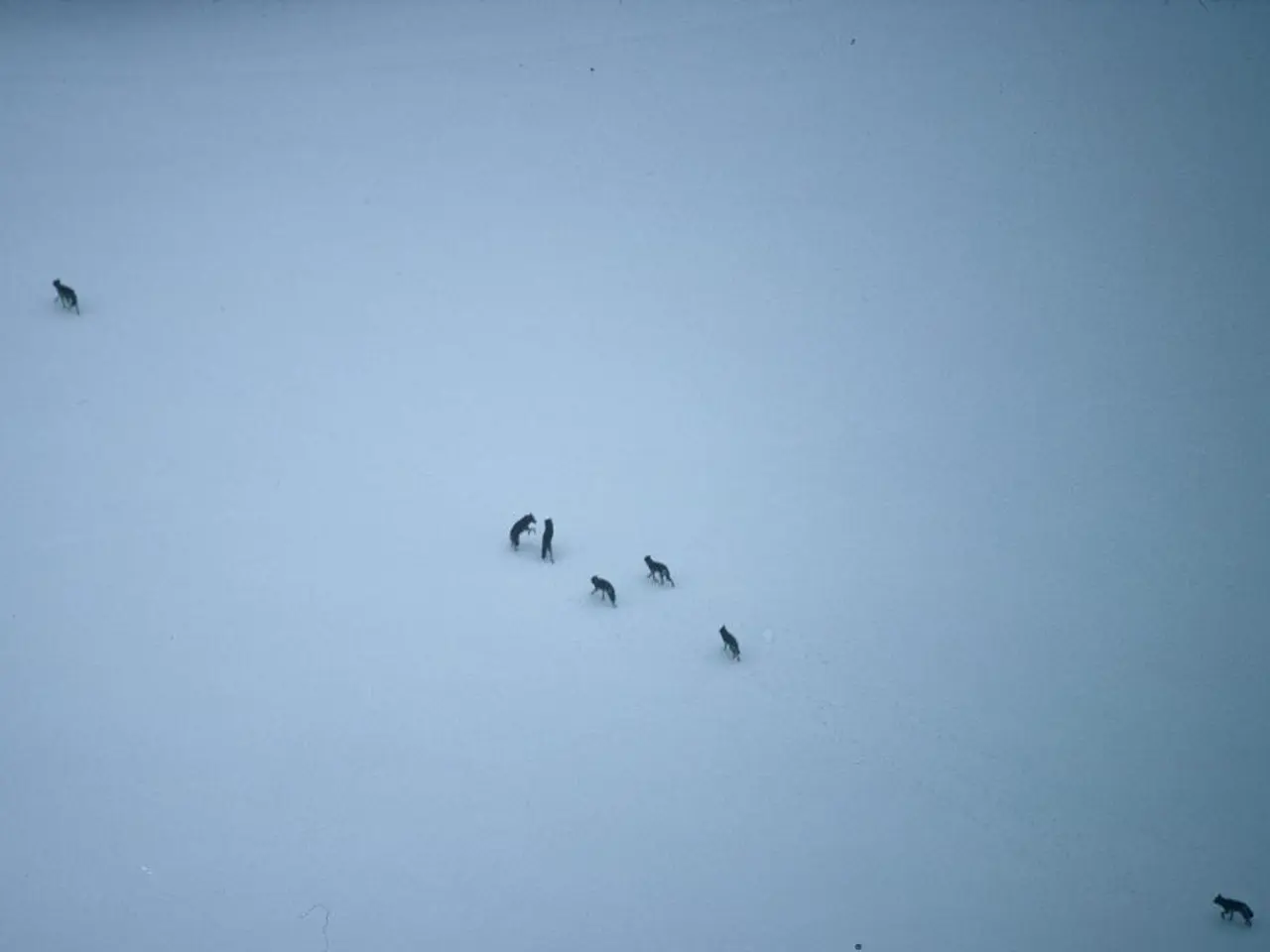Researchers modify the DNA of wolves to create a breed with white fur and robust, dire wolf-like jaws
In a groundbreaking development, Colossal Biosciences, a leading biotech company, has cloned four red wolves using blood drawn from wild wolves of the critically endangered red wolf population in the southeastern United States. The aim is to bring more genetic diversity into the small population of captive red wolves, which scientists are using to breed and help save the species.
The genetically engineered pups, named Romulus, Remus, and Khaleesi, resemble extinct dire wolves, being about 20-25% larger than modern gray wolves. At three to six months old, they weigh around 80 pounds, with a mature weight of 140 pounds expected. These engineered wolves live in a large managed reserve rather than being released into the wild freely.
Colossal's approach involves analyzing ancient DNA and identifying key genes using artificial intelligence. These genes are then applied to closely related living species, in this case, gray wolves, and implanted into surrogate domestic dogs for gestation. The company has also announced similar projects to genetically alter cells from living species to create animals resembling extinct woolly mammoths, dodos, and others.
However, independent scientists have raised concerns about the limitations of restoring the past with the revival of extinct species like dire wolves. The genetic modifications do not restore a species identical to the extinct one but instead create an ecological replacement with some similar traits. For instance, the cloned red wolves may never learn the finishing moves of how to kill a giant elk or a big deer, as they do not have opportunities to watch and learn from wild dire wolf parents.
Moreover, whatever ecological function the dire wolf performed before it went extinct, it cannot perform those functions on today's existing landscapes. The cloned red wolves are part of Colossal's broader application for conservation of other species, but questions remain about their full ecological impact and the possibility of full restoration in the wild.
Interior Secretary Doug Burgum praised the work as a "thrilling new era of scientific wonder," while Christopher Preston, a wildlife expert at the University of Montana, noted that the technology used by Colossal for cloning animals is less invasive than other techniques.
Colossal CEO Ben Lamm met with officials from the U.S. Interior Department in late March about the project. As the cloned red wolves continue to grow and develop, the debate over their role in conservation and the ethics of cloning extinct species will undoubtedly continue.
References: 1. Colossal Biosciences 2. New Scientist 3. BBC News
- The breakthrough in cloning red wolves by Colossal Biosciences, a leading biotech company, showcases how technology can significantly impact business and science, particularly in the field of environmental science.
- The genetically engineered red wolves, while promising for health and wellness of their species, may face challenges in adapting to their role in the ecology, raising questions about their effectiveness in the media-hyped space and astronomy of conservation.
- The media has been buzzing with the news of Colossal Biosciences' plans to genetically alter cells from living species to create animals resembling extinct ones, such as woolly mammoths and dodos, demonstrating the intriguing intersection of technology, media, and science.
- The technology employed by Colossal Biosciences to clone animals has been lauded for its less invasive nature, and Interior Secretary Doug Burgum has commended it as a thrilling new era in scientific wonder.
- Education in the science of genetic engineering may be essential as controversial projects, like the one carried out by Colossal Biosciences, create debates about the ethics of cloning extinct species and their potential impact on health-and-wellness, business, and the environment.
- The cloning of red wolves is a part of Colossal Biosciences' broader vision for the conservation of various species, with questions remaining about the feasibility of full ecological restoration in the wild, thus underlining the complexity of the relationship between technology, business, and environmental-science.




